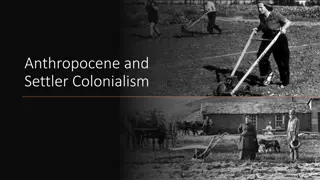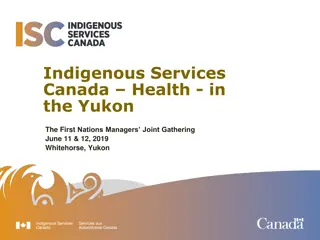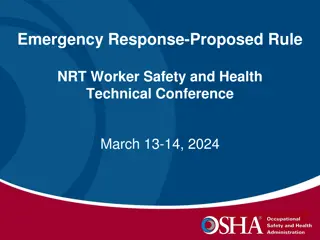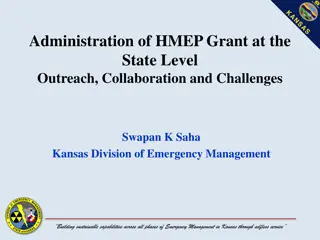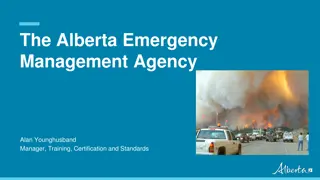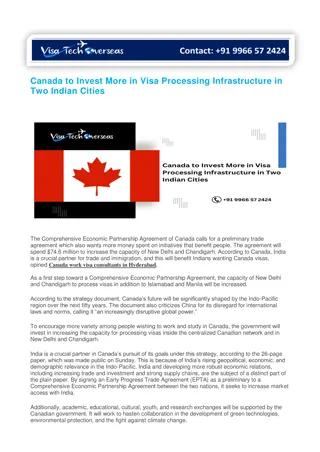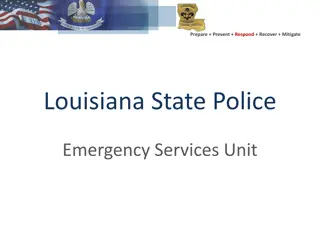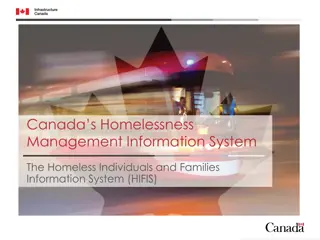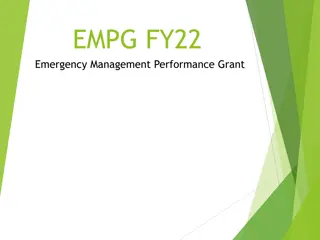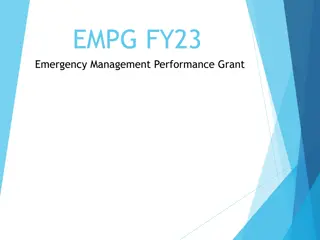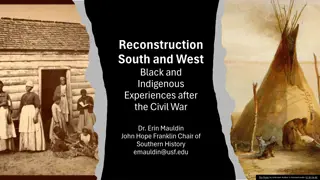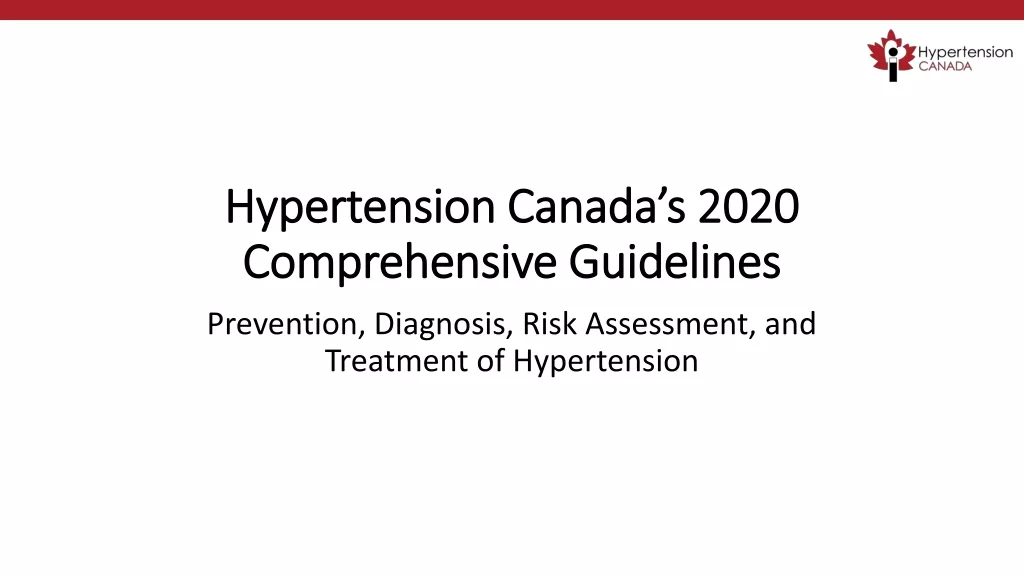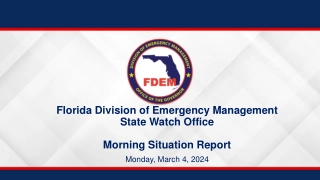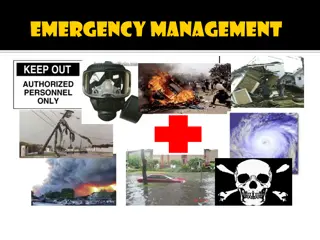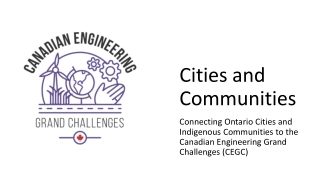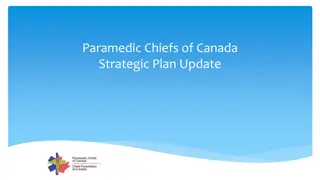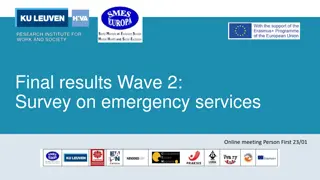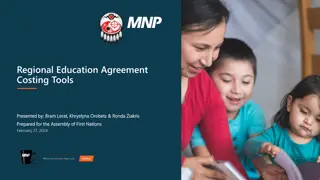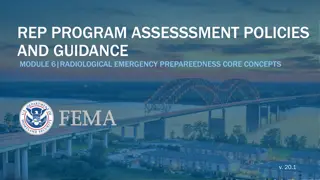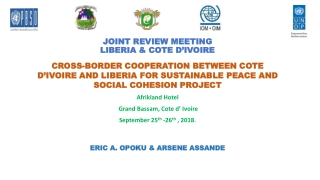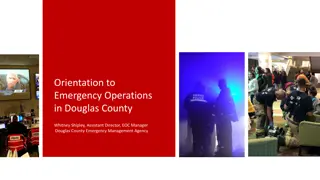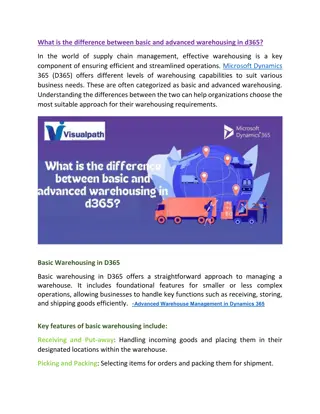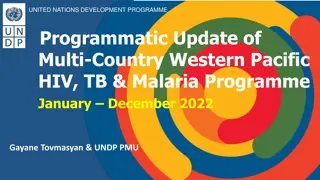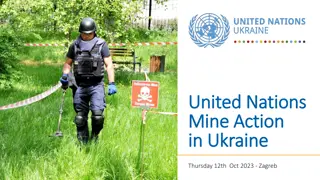Indigenous Services Canada: Emergency Management in First Nations Communities
Indigenous Services Canada plays a vital role in emergency management for First Nations communities through various programs and initiatives. These programs focus on strengthening resiliency, preparedness, response, and recovery in the face of hazards and emergencies. The department collaborates with partners to address challenges, trends, and pressures affecting emergency management at national and regional levels, including climate change, health emergencies, and the evolving nature of emergencies in Canada.
Indigenous Services Canada: Emergency Management in First Nations Communities
PowerPoint presentation about 'Indigenous Services Canada: Emergency Management in First Nations Communities'. This presentation describes the topic on Indigenous Services Canada plays a vital role in emergency management for First Nations communities through various programs and initiatives. These programs focus on strengthening resiliency, preparedness, response, and recovery in the face of hazards and emergencies. The department collaborates with partners to address challenges, trends, and pressures affecting emergency management at national and regional levels, including climate change, health emergencies, and the evolving nature of emergencies in Canada.. Download this presentation absolutely free.
Presentation Transcript
Indigenous Services Canada: Emergency Management in First Nations Communities Assembly of First Nations 2024 Emergency Management Forum Hilton Lac Leamy Gatineau, QC March 6, 2024 1
Purpose Provide an overview of ISC s national role in emergency management and detail the department s Emergency Management Assistance Program. Identify current trends and pressures affecting Emergency Management Assistance Program at the national and regional levels. Outline departmental efforts to evolve Emergency Management Assistance Program, address the Auditor General Report and advance multilateral agreements. Identify existing challenges and pressures as well as critical next steps. 2
ISCs National Role in Emergency Management The department provides direct funding to First Nations communities through the Emergency Management Assistance Program to strengthen resiliency, prepare for hazards and respond to them using the four pillars of emergency management: mitigation; preparedness; response; and recovery. ISC PARTNER PROGRAMS WITHIN EMERGENCY MANAGEMENT: EMERGENCY MANAGEMENT ASSISTANCE PROGRAM EMAP helps communities on reserve access emergency assistance services, including health emergency services. The program also provides funding to provinces, territories and non-government organizations to support on-reserve emergency management. First Nations & Inuit Health Branch: Health Emergency Management (HEM) provides funding support for health emergency preparedness, capacity building and knowledge mobilization. Indigenous Community Support Fund (sunsetted): The single window funding approach that provided more than $1.8B to Indigenous leadership and organizations to prevent, prepare and respond to COVID-19. First Nation Infrastructure Fund (FNIF): Strategic investments in critical and permanent infrastructure support on-reserve communities by modifying hazards and making the design and construction of assets more resilient. Structural Fire Protection: Core capital funding to on-reserve communities on an annual basis that can be used for fire protection services as well as fire insurance. EMERGENCY MANAGEMENT: SHARED RESONSIBILITY Minister of Emergency Preparedness Emergency management in Canada is a shared responsibility between federal, provincial and territorial governments and their partners, including Indigenous partners, where each level of government has their own set of emergency management laws and governance models. Within the federal government, emergency management is a shared responsibility between a variety of departments. 3
Trends & Pressures Key drivers are working in tandem with the changing nature of emergencies in Canada that are driving the evolution of the program. Climate Change First Nation Priorities Health Emergencies The addition of health emergencies to the Emergency Management Assistance Programs terms and conditions has evolved the program s scope. First Nation leaders have expressed a desire to have more autonomy over emergency management services. Canada s emergency management system is being challenged by the evolving nature of emergencies due to climate change. OAG Report The 7 recommendations tabled by the Auditor General, and the resulting Management Response Action Plan will evolve the Emergency Management Assistance Program. Service Transfer Mandate ISC is mandated to transfer the care and control of services to self- determining First Nation communities. 4
Wildfire season began on April 1st and lasted until October 12th 2023 Wildfire Season Overview 1,024 In 2023, there were 161 First Nation communities impacted by wildfires; resulting in 90 evacuations; of approximately 29,387 evacuees. Number of First Nation members evacuated by region due to wildfire in 2023 316 9,416 685 2,487 20 10,229 4,349 861 5
2023 Wildfire Season: Lessons Learned Collaboration with federal, provincial/territorial, and Indigenous partners is ongoing to enhance alignment. In 2023, advance payments were introduced to enhance First Nations' ability to financially manage emergencies. Feedback from the wildfire season highlighted its positive impact, and ISC intends to continue the practice in 2024. Local capacity is key to support preparedness in First Nation communities. ISC will fund a proof-of-concept project in Alberta from April 1, 2024, which establishes all-hazard emergency management positions in each of the 48 communities as well, ISC will continue to support over 196 full and part-time First Nation Emergency Management coordinator positions across the country. ISC has supported numerous initiatives this past year in regions hard hit by the 2023 wildland fires in preparation for the 2024 wildfire season, including: Over $2.7 million to the First Nation Emergency Services Society in BC to support various wildland fire mitigative and preparedness projects in the region; and Over $1.5 million FireSmart funding to support vegetation management projects in priority zones in Alberta First Nation communities. 6
Emergency Management Assistance Program: Expenditures By Year Emergency management response and recovery funding is increasing as climate emergencies increasingly impact First Nations. For fiscal year 2023-24, the Emergency Management Assistance Program has to date allocated $375 million for response and recovery measures. EMAP Funding Program Totals by FY, 2005-Present NON-STRUCTURAL MITIGATION AND PREPARDENESS RESPONSE $350,000,000.00 Activities designed to address the short- term effects of an emergency and reduce loss and suffering $300,000,000.00 Readiness measures to enable effective response to and recovery from an emergency or minimize impacts of an emergency $250,000,000.00 $200,000,000.00 $150,000,000.00 FIRESMART AND FOREST FIRE SUPPRESSION RECOVERY $100,000,000.00 Activities to restore physical, social and economic activities to pre-event levels or better $50,000,000.00 Activities to specifically mitigate against wildland fire and aid in forest fire suppression preparedness $- Non-Structural Preparedness and Mitigation Response Recovery FireSmart and Forest Fire Supression *Fiscal Year 2023-24 Response and Recovery Costs are still being calculated 7
Auditor General Recommendations The Office of the Auditor General s report, released in November 2022 and focused on emergency management on reserve, made seven recommendations. In response to the report, ISC has created the Management Response Action Plan, which lays out the department s intended approach to addressing each recommendation included in the report: Risk- Based Approach Comparable and Culturally Appropriate EM Services Unfunded/Unreviewed Structural Mitigation Projects Auditor Generals Report Recommendations Performance Indicators Service Agreements Emergency Management Coordinators Emergency Management Plans 8
Steering Committee Structural and Wildland Firefighting Intended to inform, oversee, and provide guidance on ISC s actions to respond to the Auditor General s report & recommendations. Health Emergency Services Committee Members are predominantly current Emergency Management Coordinators (or similar) in First Nation Communities and Tribal Councils. Canadian Armed Forces & Royal Canadian Mounted Police Members bring previous experience in: Made up of First Nations representatives across Canada with emergency management experience. Housing Committee includes representatives from Indigenous Services Canada and Public Safety Canada. Meetings occur bi-weekly. Human Resources Pandemic Response 9
Health Impacts of Emergencies Significant indirect and longer-term impacts on physical and mental health Impact on the conditions that influence health and well-being, such as education, income, housing, food security, and access to health care Drive behaviours that have negative health impacts, such as increased substance use, systemic racism and discrimination, and violence 10
Social Determinants of Health Social determinants of health (SDOH) provide an important framework of understanding the origin of health disparities Legacy and continuation of colonial practices that have led to different exposure, impacts, and capacity to respond to and recover from emergencies facing First Nations communities ISC recognizes the impact of the SDOH and will continue to work with First Nation partners to address the SDOH to improve emergency management 11
Culture as Foundation UNDRIP Recognizing the historic and ongoing stewardship of Indigenous Peoples, and First Nations knowledges and practices can inform prevention and mitigation initiatives UN Declaration on the Rights of Indigenous Peoples (UNDRIP, 2007) can provide a road map for EM professionals 12
FPTFN Co-Planning and Co-Implementation ISC supports First Nations to co-plan and co-respond with provinces and municipalities for emergencies Public health has an important role to play and can bring existing tools to advance health equity, strengthen social supports, and build trusted partnerships with First Nation but should not subsume Indigenous-led approaches 13
What are Multilateral Partnership Agreements? Multilateral Partnership Agreements are a mechanism to formalize First Nations-led Emergency Management and clarify roles and responsibilities of all partners including provinces and territories. Through a more holistic approach, First Nations are equal partners in agreements and all partners can better manage risks at the local level and strengthen resilience through collaboration. Co developed agreements that are inclusive of First Nations as full and equal partners from design to delivery. Formalized partnership in decision-making and implementation mechanisms. Ensure culturally safe emergency management efforts and cultural continuity during recovery from an emergency, and decolonize decision-making structures. Build enhanced capacity and integrate Indigenous knowledges, culture, and expertise in disaster risk assessment and the development and implementation of tailored action, from prevention to recovery. 14
Multilateral Agreements Recent successes Multilateral discussions are continuing to advance across Canada with First Nations partners and Provincial and Territorial Governments. Significant strides have been made in all jurisdictions to advance the co-development of multilateral emergency management service agreements and provide supports for First Nation-led EM. Examples include: Saskatchewan and Manitoba: provided funding to Tribal Councils and Indigenous Representative Organizations to support their emergency management model development. o Alberta: hosted a chiefs meeting on emergency management resulting in agreement to launch a new proof of concept to establish Emergency Management Coordinators to oversee both natural disasters and health emergencies in all First Nation communities in Alberta. o Ontario: Establishing a multilateral roundtable to develop the governance structure of a future multilateral agreement. o Atlantic Region: Tribal Councils hosted their very first Emergency Management Conference in Halifax in September 2023, and funding was approved for a Tribal Council in Nova Scotia for enhanced capacity to work towards a new multilateral agreement in the province. o British Columbia: First Nations Leadership Council, Canada, British Columbia actively engaged in advancing work to support the development of a new multilateral agreement. o 15
Preparation and Mitigation Moving forward, ISC will continue to focus on preparation and mitigation programming: Emergency Management Coordinators ISC funds Emergency Management Coordinators and Fire Protection Officers in First Nation communities Non-Structural Mitigation Funding for non- structural projects undertaken by First Nations communities on reserve to prepare for and mitigate damages from, emergency events Health Emergency Management Supports or preparedness, capacity building, and knowledge mobilization for health emergency management activities Structural Mitigation This fund supports hazard mitigation and prevention pillar of emergency management by investing in structural mitigation projects Other Community Infrastructure Fire Protection ISC allocates funding to support on-reserve First Nations to provide their communities with structural fire protection 16
Transformation Agenda ISC is pursuing changes to its emergency management approach, based on engagement with First Nation partners, provinces, territories and other government departments. The transformation agenda will also look at the Auditor General s recommendations and incorporate forward looking mitigative and preparatory initiatives. In reviewing the Emergency Management Assistance program, ISC is focusing on forward looking initiatives and programs that assist communities in preparing for emergency events. Expansion of the Emergency Management Coordinator program. Advanced payments to communities when dealing with emergency events. Continued negotiations with First Nations, and the provinces and territories on multilateral emergency management agreements. 17
Moving Forward With First Nations driving the conversation, Indigenous Services Canada will continue to support communities in preparing for, and recovering from, emergency events: Continued focus on building relationships with First Nation partners, to ensure that we are meeting their needs. Focus on relationships with other government departments, and the provinces and territories to identify and fill any gaps in the emergency management system and push forward to achieve multilateral agreements. Transforming the Emergency Management Assistance Program to ensure that First Nations needs are met including through responses to the Office of the Auditor General s report. 18




